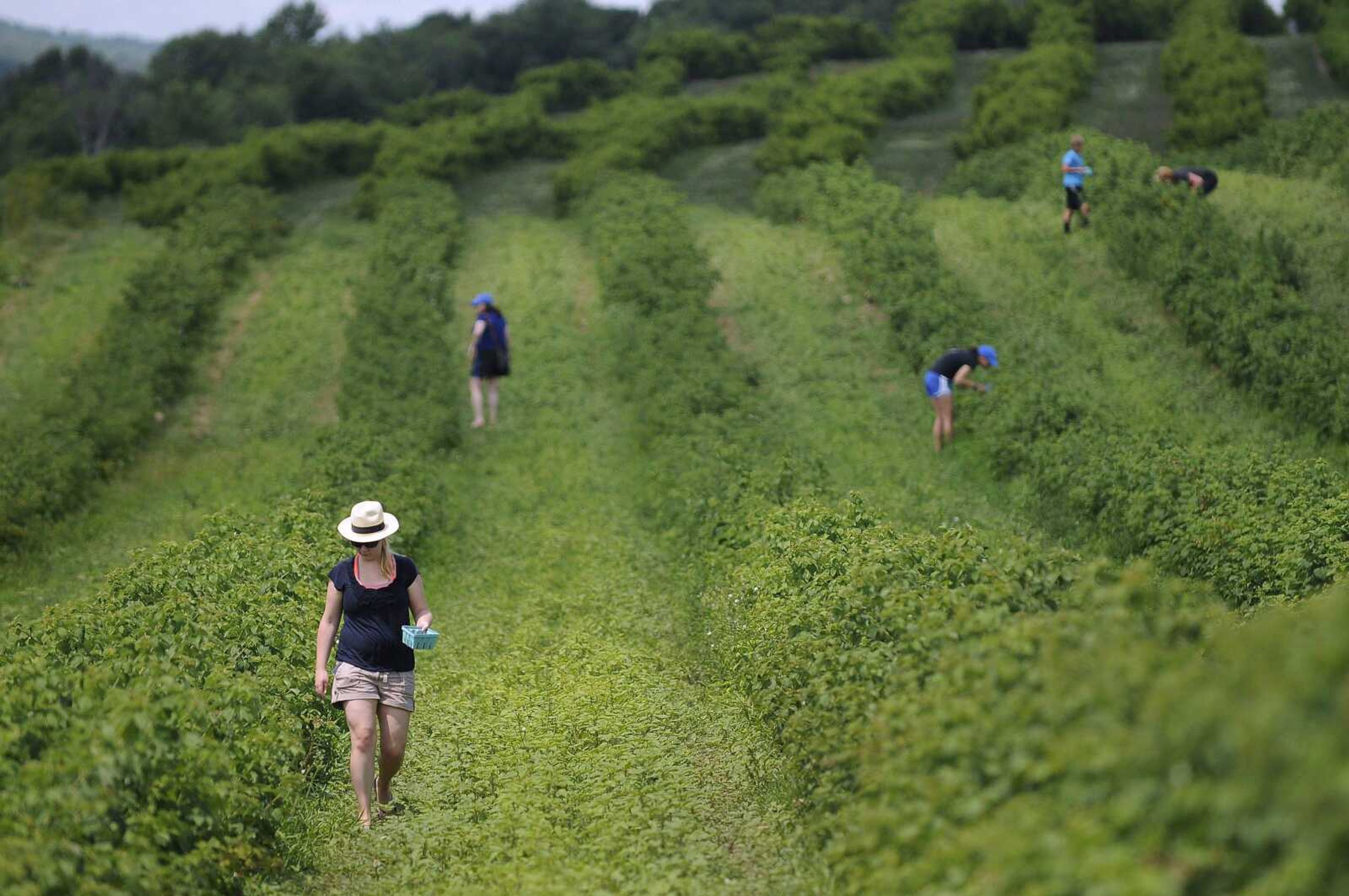Family-owned farm to celebrate 275 years
MIDDLEFIELD, Conn. -- Through wars, financial panics and a freeze that destroyed its peach crop a century ago, eight generations of the Lyman family have sustained its farm in the hills of central Connecticut. The family behind Lyman Orchards now is looking to cultivate the next generation of owner-operators, concerned not enough younger members will step up to keep the farm run by the family as it has been since it was established nearly 275 years ago...
MIDDLEFIELD, Conn. -- Through wars, financial panics and a freeze that destroyed its peach crop a century ago, eight generations of the Lyman family have sustained its farm in the hills of central Connecticut.
The family behind Lyman Orchards now is looking to cultivate the next generation of owner-operators, concerned not enough younger members will step up to keep the farm run by the family as it has been since it was established nearly 275 years ago.
"I think it's a little of 'to be determined,'" said John Lyman, executive vice president of Lyman Orchards. "Nothing lasts forever."
Last summer, a two-day family conference drew 16 ninth-generation family members from around the U.S. to expose them to the business and help identify future leaders for the farm.
Two members of that generation are committed to Lyman Orchards, and John Lyman said his son, a University of Connecticut engineering graduate, might also seek employment with the business. Lyman said the hope is the family will find enough members to sustain the business for the next decade and beyond.

Lyman, 58, has been the only family member of his generation to work at the business since a brother became an insurance agent and a sister went to journalism school. Five other family members hold seats on the 10-member board, and the farm's president and chief executive, Steve Ciskowski, is not a relative.
Ira Bryck, director of the University of Massachusetts Family Business Center, said there are many family businesses that extend through a fourth generation. A business making it to the ninth generation, he said, "is off the charts."
He said family members have a powerful incentive to ensure such an enterprise succeeds: "'I will not be responsible for the failure of a centuries-old enterprise.' That person will be a good steward," he said.
The initial 32-acre farm was founded in 1741 but has grown to 1,100 acres, with 300 acres used for the orchard and a 450-acre golf course.
Until a destructive freeze in the winter of 1917-18, its 500 acres of peaches, with other peach farms in the state, made Connecticut the second largest peach-producing state after Georgia, Lyman said. Lyman Orchards has switched to apples as its primary crop, but it still grows peaches, blueberries, raspberries and pumpkins.
The farm, which plans a celebration next year of its 275th anniversary, also features a wholesale pie business, corn maze and a retail store selling pies, fruits, apple cider and other products.
Lyman initially avoided agriculture as an occupation after working summers on the farm as a youth. He changed direction, however, after working in an orchard in Holland 35 years ago.
"What I didn't anticipate was how much I loved about the industry. There's so much more to learn, to bring back. Simple things like pruning."
Connect with the Southeast Missourian Newsroom:
For corrections to this story or other insights for the editor, click here. To submit a letter to the editor, click here. To learn about the Southeast Missourian’s AI Policy, click here.










